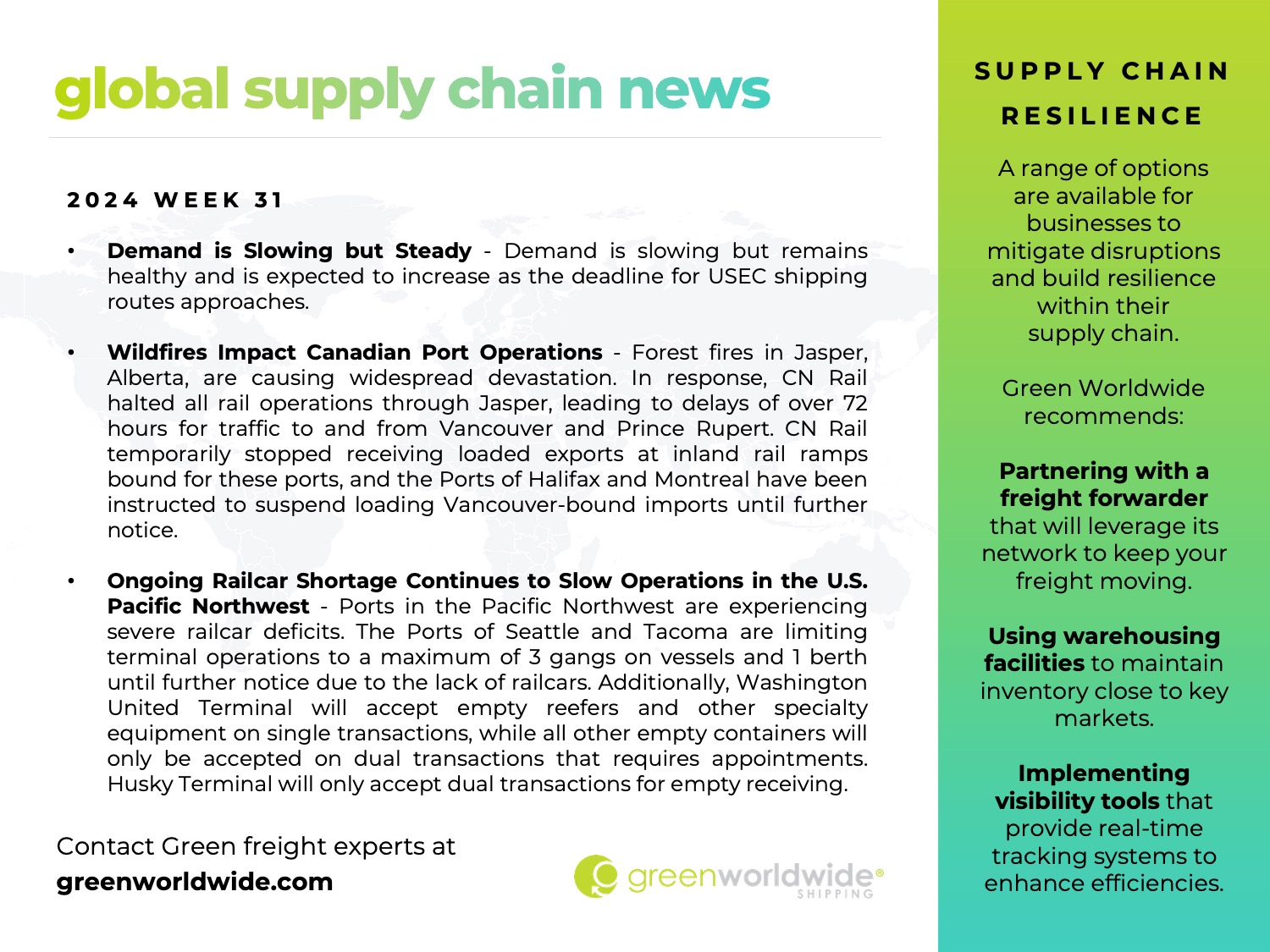As Week 31 comes to a close, we find the global supply chain facing familiar challenges including strained labor relations, wildfires delaying Canadian port operations, and railcar shortages that continue to plague the U.S. Pacific Northwest.
DEMAND SLOWS YET REMAINS HEALTHY
Demand is slowing but remains healthy and is expected to increase as the deadline for USEC shipping routes approaches. Contract negotiations between ILA dockworkers and the US Maritime Alliance has stalled causing uncertainty about a labor strike. Shippers should consider alternative routes via USWC if no compromise is reached.
WILDFIRES IMPACT CANADIAN PORT OPERATIONS
Forest fires in Jasper, Alberta, are causing widespread devastation. In response, CN Rail halted all rail operations through Jasper, leading to delays of over 72 hours for traffic to and from Vancouver and Prince Rupert. CN Rail temporarily stopped receiving loaded exports at inland rail ramps bound for these ports, and the Ports of Halifax and Montreal have been instructed to suspend loading Vancouver-bound imports until further notice.
RAILCAR SHORTAGE CONTINUES TO PLAGUE U.S. PACIFIC NORTHWEST PORT OPERATIONS
Ports in the Pacific Northwest are experiencing severe railcar deficits. The Ports of Seattle and Tacoma are limiting terminal operations to a maximum of 3 gangs on vessels and 1 berth until further notice due to the lack of railcars. Additionally, Washington United Terminal will accept empty reefers and other specialty equipment on single transactions, while all other empty containers will only be accepted on dual transactions that requires appointments. Husky Terminal will only accept dual transactions for empty receiving.
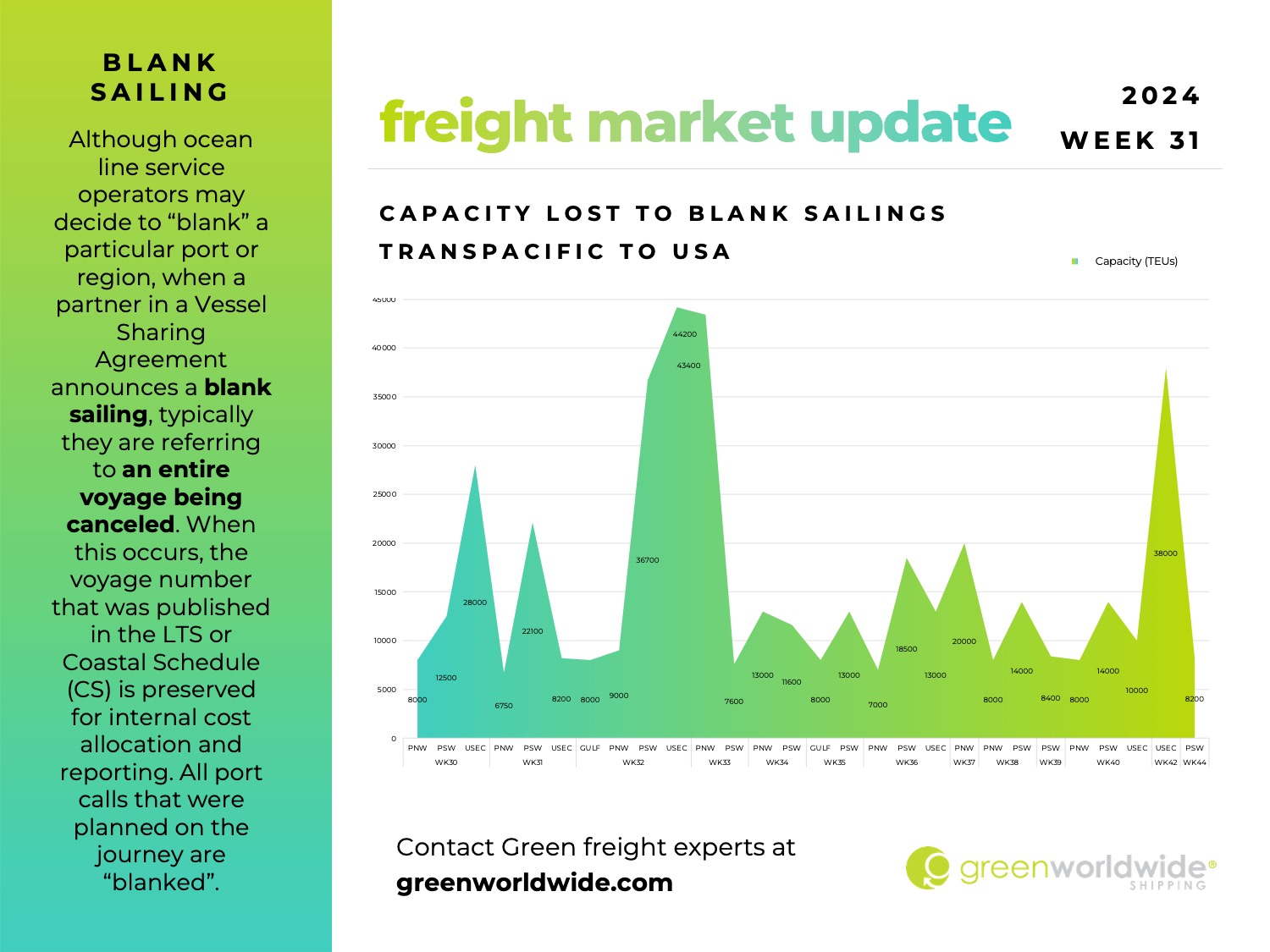

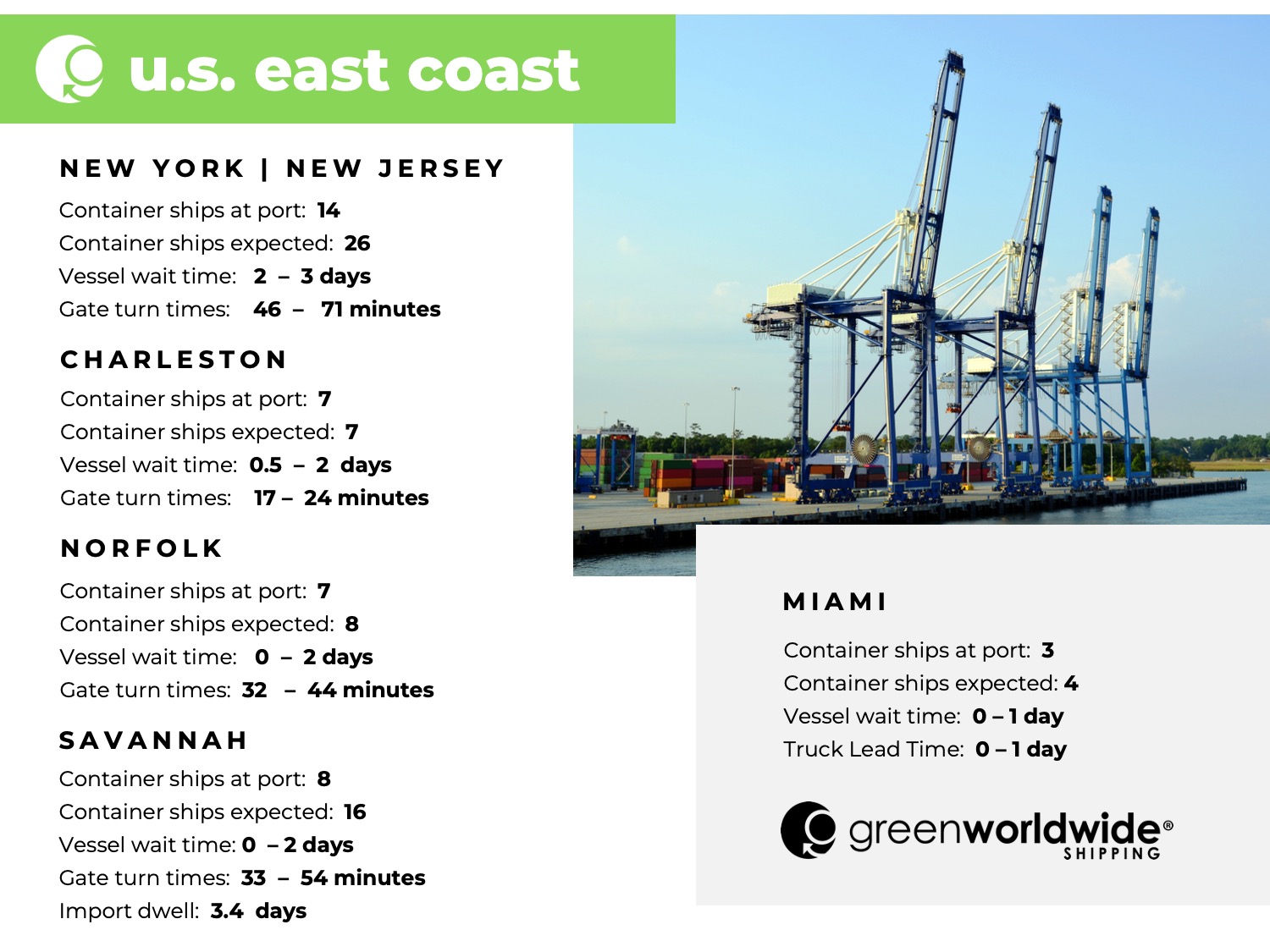
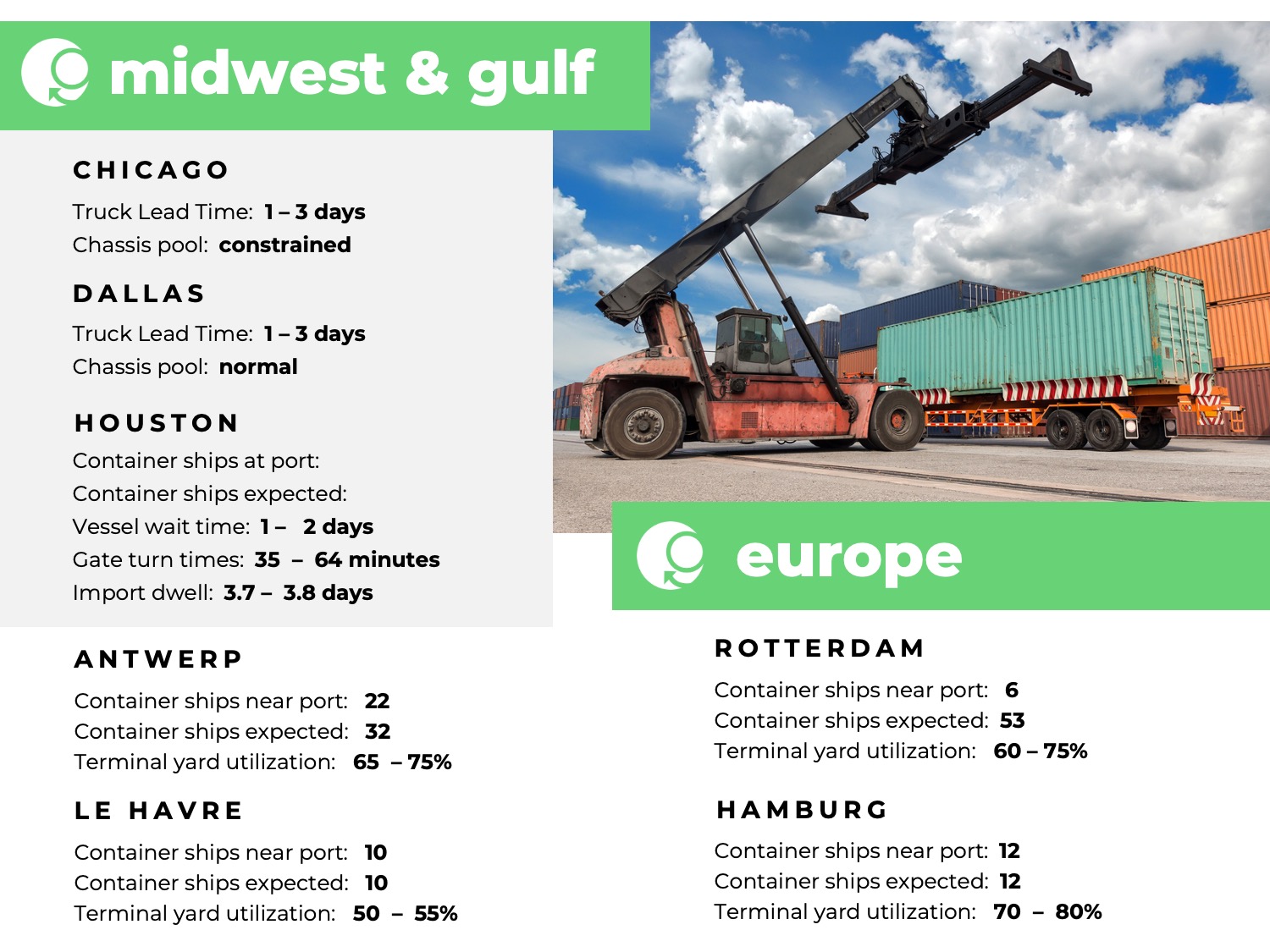
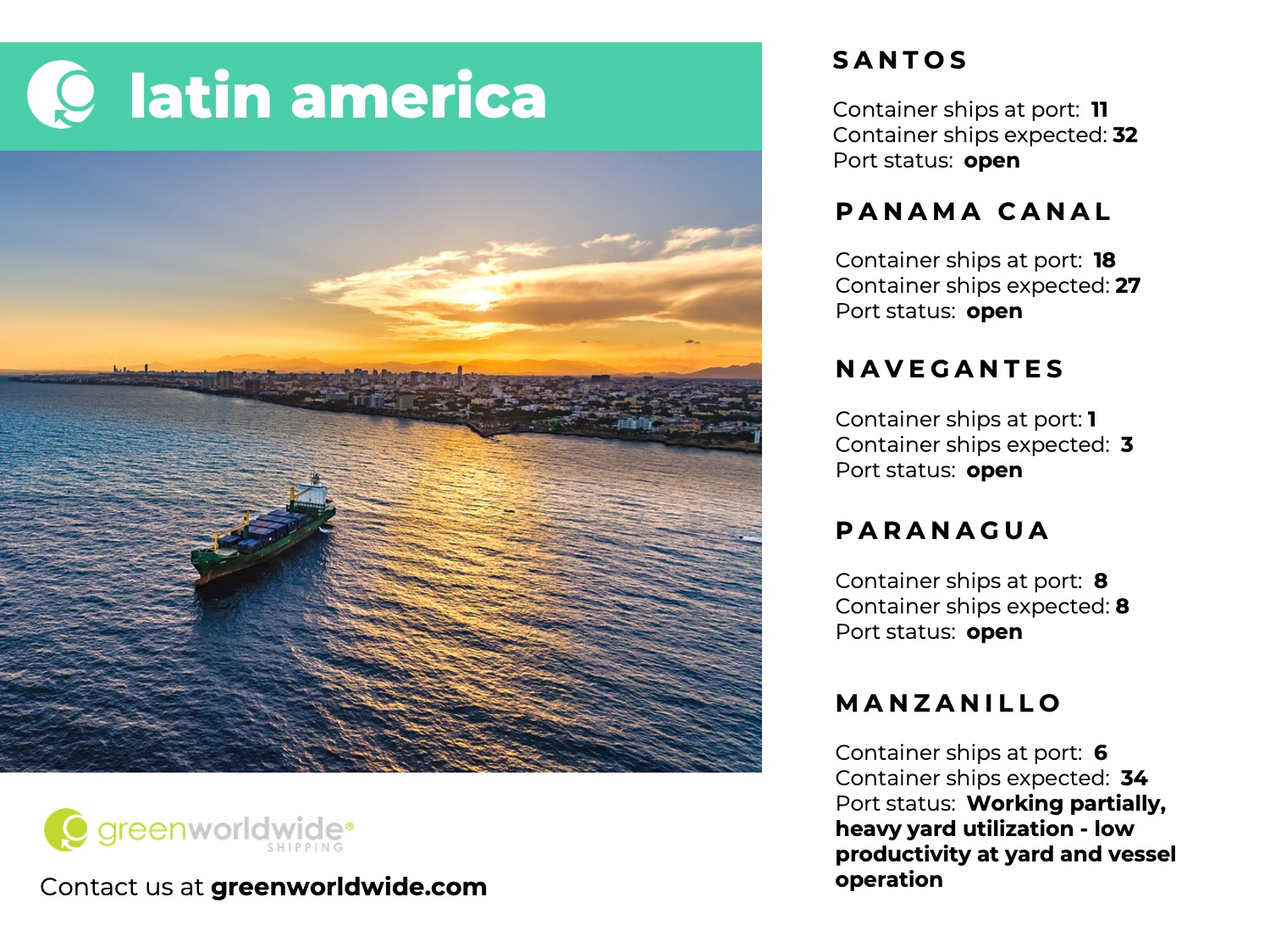
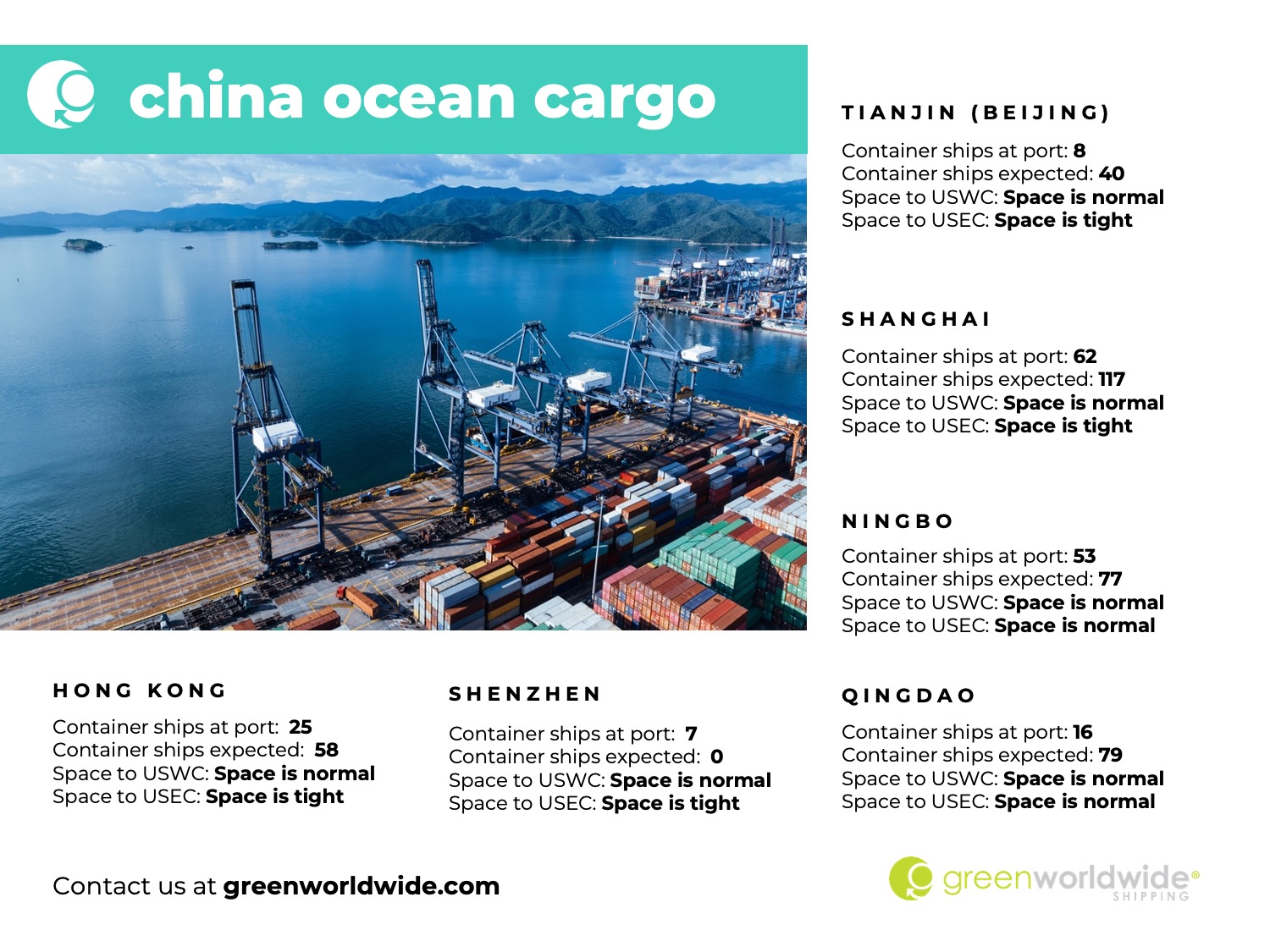
Stay up-to-date on freight news with Green’s Weekly Freight Market Update by following us on LinkedIn. For continuous updates, make sure to check out our website at greenworldwide.com.

